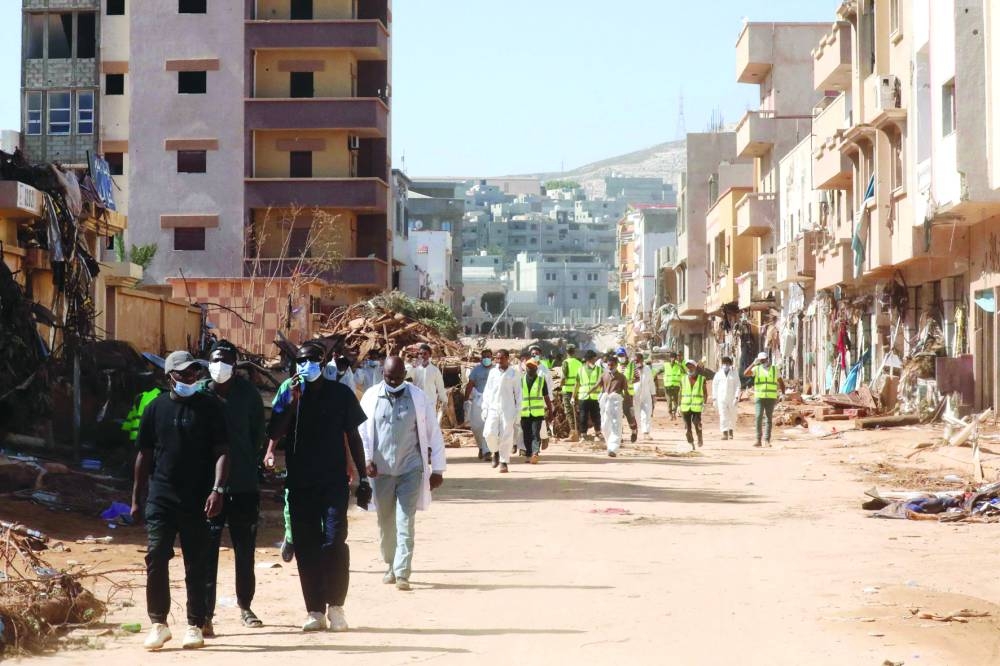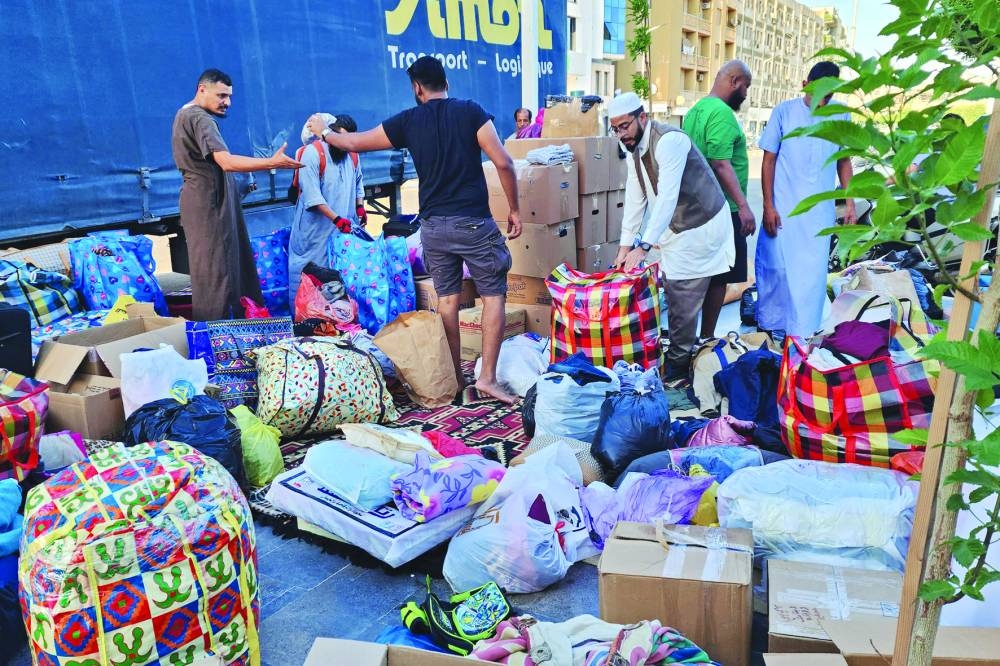Rescuers sifted through mud and rubble yesterday in their search for people missing from the tsunami-sized flash flood that swept through the Libyan port city of Derna, killing more than 3,000.
The surge of water burst two upstream dams on Sunday, turning Derna into an apocalyptic wasteland with entire city blocks and untold numbers of people washed out into the Mediterranean.
The UN launched an appeal for more than $71mn to assist hundreds of thousands in need and warned the “extent of the problem” remains unclear.
An AFP journalist in Derna said central neighbourhoods on either side of the river, which normally dries up at this time of year, looked as if a steam roller had passed through, uprooting trees and buildings and hurling vehicles onto the port’s breakwaters.
Teams from the Libyan Red Crescent are “still searching for possible survivors and clearing bodies from the rubble in the most damaged areas” of Derna, its spokesman Tawfik Shoukri said.
Other teams were trying yesterday to deliver much-needed aid to families in the eastern part of the city, which had been spared the worst of the flooding but was cut off by road, he added.
He pointed the “very high” level of destruction in the city, but declined to give figures for the number of dead.
Officials in the east of the divided country gave different toll estimates, with one speaking of at least 3,840 dead.
“We don’t know the extent of the problem,” UN aid chief Martin Griffiths said yesterday in Geneva, as he called for co-ordination between Libya’s two rival administrations — the UN-backed, internationally recognised government in Tripoli, and one based in the disaster-hit east.
While most fear the death toll will be much higher, Tamer Ramadan of the International Federation of Red Cross and Red Crescent Societies said there was still hope of finding survivors but declined to give a figure.
The International Organisation for Migration meanwhile said “over 38,640” people were left homeless in eastern Libya, 30,000 of them in Derna.
Hundreds of body bags now line Derna’s mud-caked streets, awaiting mass burials, as traumatised and grieving residents search mangled buildings for missing loved ones and bulldozers clear streets of debris and mountains of sand.
“We are trying to take DNA samples and pictures of the victims before their burial to help with identification later on,” Lieutenant Tarek al-Kharraz, a spokesman for the east-based government, told a Libyan news channel.
In one flooded home, a rescue team pumped out the water to reveal a woman’s lifeless arms still clutching her dead child, the AFP journalist reported.
Abdelaziz Bousmya, who lives in the Chiha neighbourhood which was spared by the wall of water that devastated lower-lying districts, said he lost loved ones.
“They are all either buried under the mud or got swept out to sea by the floodwaters,” the 29-year-old said, accusing the authorities of failing to take preventive measures. The floods were caused by hurricane-strength Storm Daniel, compounded by the poor infrastructure in Libya, which was plunged into turmoil after a Nato-backed uprising toppled and killed long-time dictator Muammar Gaddafi in 2011.
Two rival administrations vie for power in the country’s east and west, but the flooding has precipitated a rare show of solidarity.
The disaster prompted an outpouring of aid, with rival television channels on both sides of the country simultaneously screening a telethon to gather funds for the victims.
Military strongman Khalifa Haftar, who backs the east-based administration, arrived in Derna yesterday to “follow up on rescue operations”, Libyan media said.
World Meteorological Organisation chief Petteri Taalas said many deaths could have been avoided if early warning and emergency management systems had functioned properly in the war-scarred country.
“They could have issued the warnings and the emergency management forces would have been able to carry out the evacuation of the people, and we could have avoided most of the human casualties.”
Access to Derna remains severely hampered as roads and bridges have been destroyed and power and phone lines cut to wide areas.The UN said that “with the collapse of most roads, the municipality (of Derna) is urging relevant authorities to establish a sea corridor for emergency relief
and evacuations”.

Volunteers walk past damaged homes after the Mediterranean storm “Daniel” hit Libya’s eastern city of Derna, yesterday.

People bring donated supplies to a collection point in Libya’s capital Tripoli, yesterday, before their transfer to aid affected residents following devastating floods in eastern cities.
